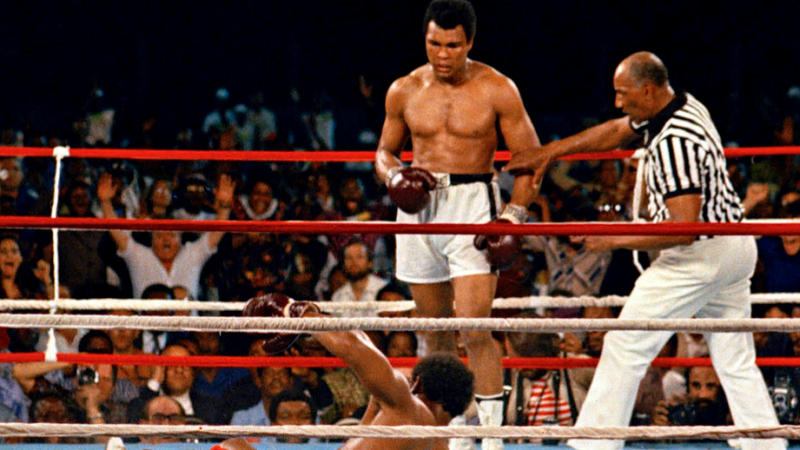Published 21:05 IST, November 1st 2024
50 Years Of Rumble In The Jungle: The Bout That Cemented Muhammad Ali As The Greatest Of Them All
This week, 50 years ago, Muhammad Ali and George Foreman met each other in an iconic bout - 'Rumble in the Jungle'. A bout that would shape Ali's as Greatest.

It was October 30, 1974, in then Kinshasa, Zaire (now Democratic Republic of Congo), that Muhammad Ali and George Foreman stepped into the ring for what would become one of the most iconic boxing matches in history.
“The Rumble in the Jungle,” as Ali dubbed the bout, was one of the most important sporting events of the 20th century. Sport intersected with culture, music and the political legacy of colonialism in an unforgettable promotion that culminated in a thrilling main event.
Ali The Underdog
Ali, known for his lightning-fast reflexes and unyielding confidence, was the underdog. At 32 years of age, people believed Muhammad Ali’s best years inside the ring were past him. But more than that, Ali’s underdog status stemmed from his immovable opponent - George Foreman.
Foreman, 25 at the time, was the heavyweight champion and entered into the fight decimated boxing greats Joe Frazier and Ken Norton in only two rounds each. With unmatched power and a unbeaten 40-0 record, Foreman was expected to crush Ali and retain his title.
George Foreman was the favourite, but Ali was Ali, ever the showman and strategist. On that sweltering African night filled with heat and humidity, Ali wasn’t going to be an also ran, he was there to prove everyone wrong.
Rope-A-Dope to stun the world
During the fight, Ali introduced the world to his now-famous "rope-a-dope" strategy. For much of the fight, he leaned back on the ropes, allowing Foreman to unleash his power punches while Ali absorbed the blows with his arms and shoulders.

Onlookers were puzzled, fearing Ali was outmatched and overwhelmed. But Ali was setting the stage for an extraordinary comeback, waiting for his moment as Foreman slowly drained his energy.
By the eighth round, with Foreman visibly exhausted, Ali sprang into action. With a lightning-fast flurry, Ali unleashed a series of punches, sending Foreman crashing to the canvas. Foreman failed to beat the count, and Ali emerged victorious in one of the greatest upsets in boxing history. Against all odds, Muhammad Ali had reclaimed the heavyweight title and, with it, his place atop the sport.
A comeback for ages
The impact of this victory was profound. For Ali, it was a powerful redemption—this was his second comeback after his boxing license was stripped for refusing the Vietnam draft. To the world, Ali’s win represented more than athleticism; it embodied resilience, intelligence, and the power of self-belief.

Ali’s charisma and outspoken personality had already made him a global figure, but the "Rumble in the Jungle" transformed him into a symbol of courage and defiance.
Uniting Black Americans
The match's cultural significance was equally monumental. Held in Africa, it bridged a connection between Black Americans and their African roots, a theme Ali passionately embraced.
He famously rallied the crowd with his chant of "Ali bomaye!" ("Ali, kill him") in Lingala, blending sport with a sense of shared cultural identity and pride.

Half a century on, the "Rumble in the Jungle" remains a testament to Muhammad Ali's genius, grit, and showmanship. It is the bout that defined his career and solidified his legacy as the greatest of all time—a title that lives on as vibrantly today as it did on that unforgettable night in Kinshasa.
(With AP Inputs)
Updated 21:05 IST, November 1st 2024




